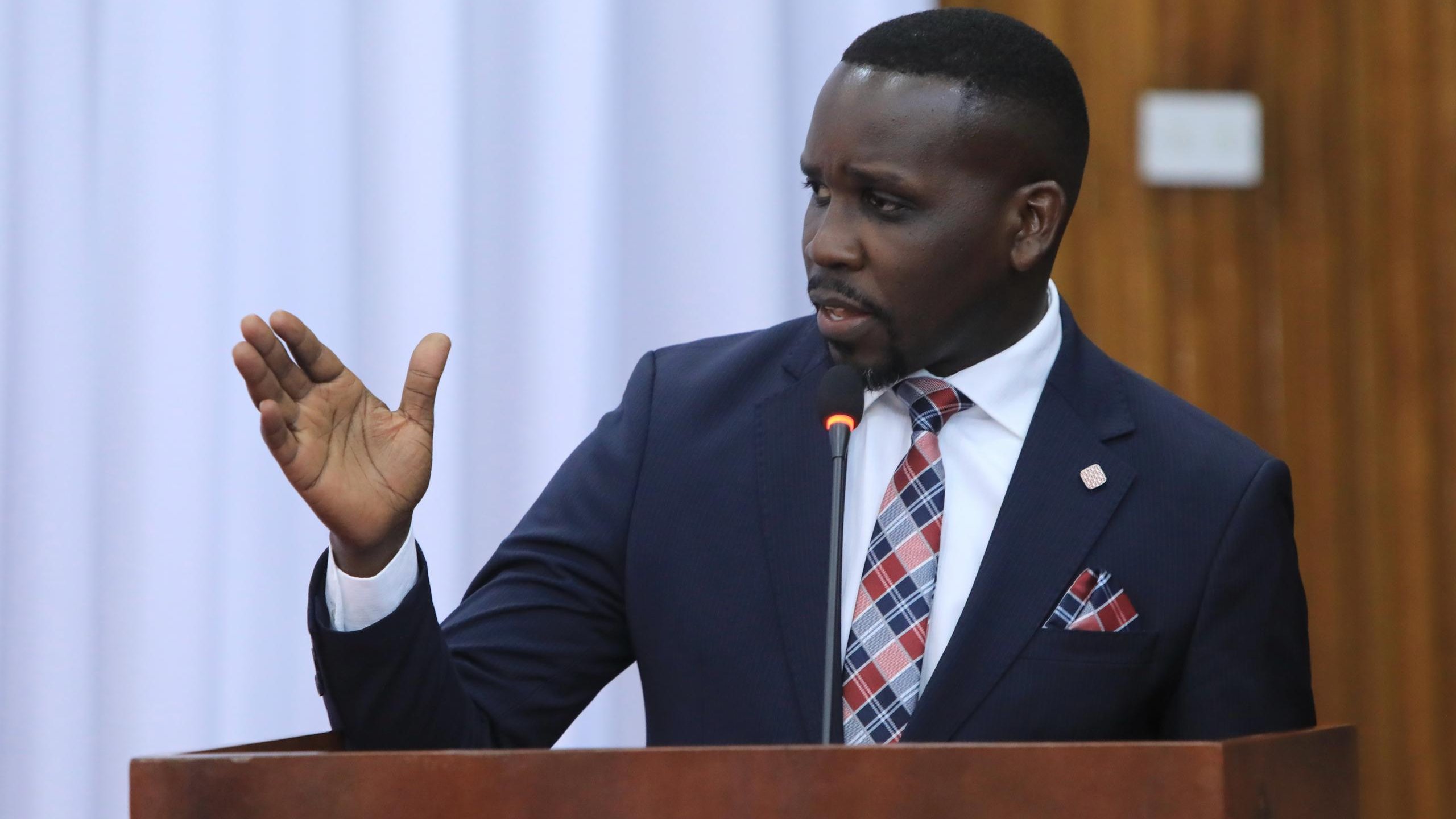Ssenyonyi criticizes government’s reckless spending and tax inequities
Tuesday April 01 2025

The Leader of Opposition, Joel Ssenyonyi, has strongly criticized the government’s reckless spending on projects such as the Lubowa Specialised Hospital, arguing that it is no surprise that over 30% of the taxes collected by Uganda Revenue Authority (URA) go towards repaying the nation’s mounting debt. Ssenyonyi made the remarks during his presentation of the Alternative Budget priority areas for the 2025/26 fiscal year at Parliament, where he also highlighted the detrimental impact of the government’s spending on essential services.
“The government’s reckless spending on fraudulent projects while neglecting essential services is a betrayal of the social contract they have with the people of Uganda,” Ssenyonyi said. He pointed to the Lubowa Specialised Hospital project as a clear example of what he called "organized corruption." Despite billions of taxpayers' money being allocated to the project, public hospitals across the country continue to face underfunding and are unable to provide even basic healthcare services.
"Public hospitals across Uganda are underfunded, and people are forced to seek treatment abroad or suffer in poorly equipped facilities. These projects have become conduits for siphoning public funds, further entrenching a kleptocratic system that prioritizes the interests of the elite over the development of the nation," he continued.
Ssenyonyi emphasized that the Alternative Budget proposals are focused on principles of equity, fiscal responsibility, and realigning Uganda's financial priorities to better serve its citizens. He warned that persistent fiscal indiscipline, excessive borrowing, and corruption have placed immense strain on the country's economy, particularly with over 30% of the national budget going toward servicing debts, leaving little room for investment in critical sectors like healthcare, education, and infrastructure.
"Our people deserve a budget that works for them—not one that burdens them with unnecessary taxes and poor service delivery," Ssenyonyi added. “It’s one thing to tax the population, but it’s another for that tax money to deliver value to the people of Uganda.”
In addition to criticizing government spending, Ssenyonyi also addressed Uganda’s suboptimal revenue collections, blaming inefficiencies in tax administration, revenue leakages, and weak enforcement of tax policies. He specifically cited the government’s failure to collect taxes from gold miners and exporters, despite existing laws to guide the revenue collection process.
"People who mine gold and are making billions of shillings are not paying taxes. Why is that? The answer is simple: these are powerful individuals in this country who operate in the trade. They exempt themselves while everyone else pays taxes. This must change," Ssenyonyi asserted. “There needs to be equity in the tax system.”


